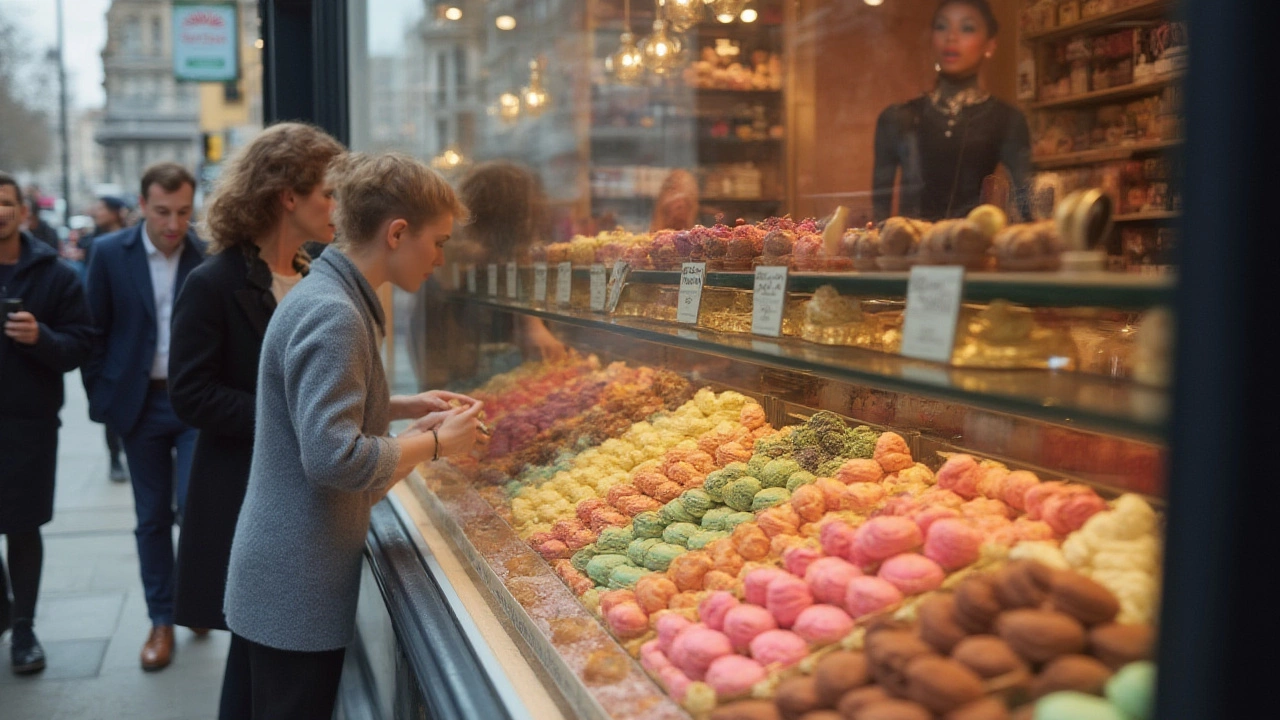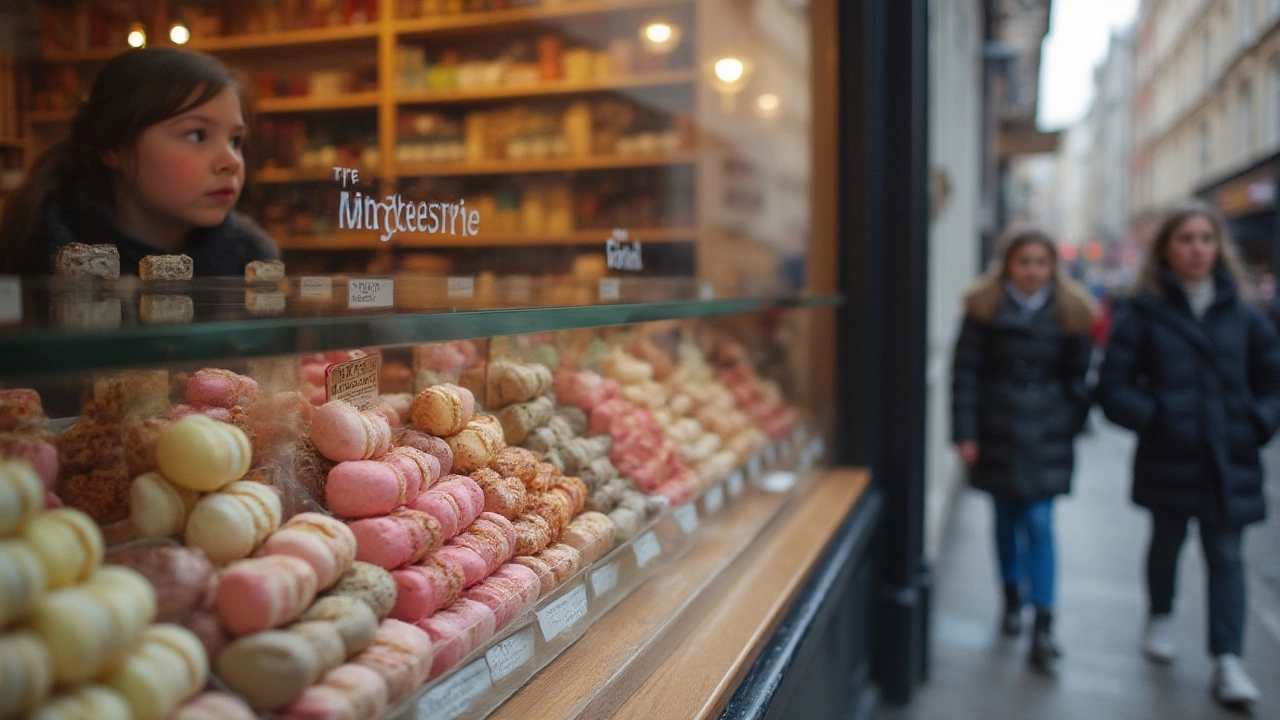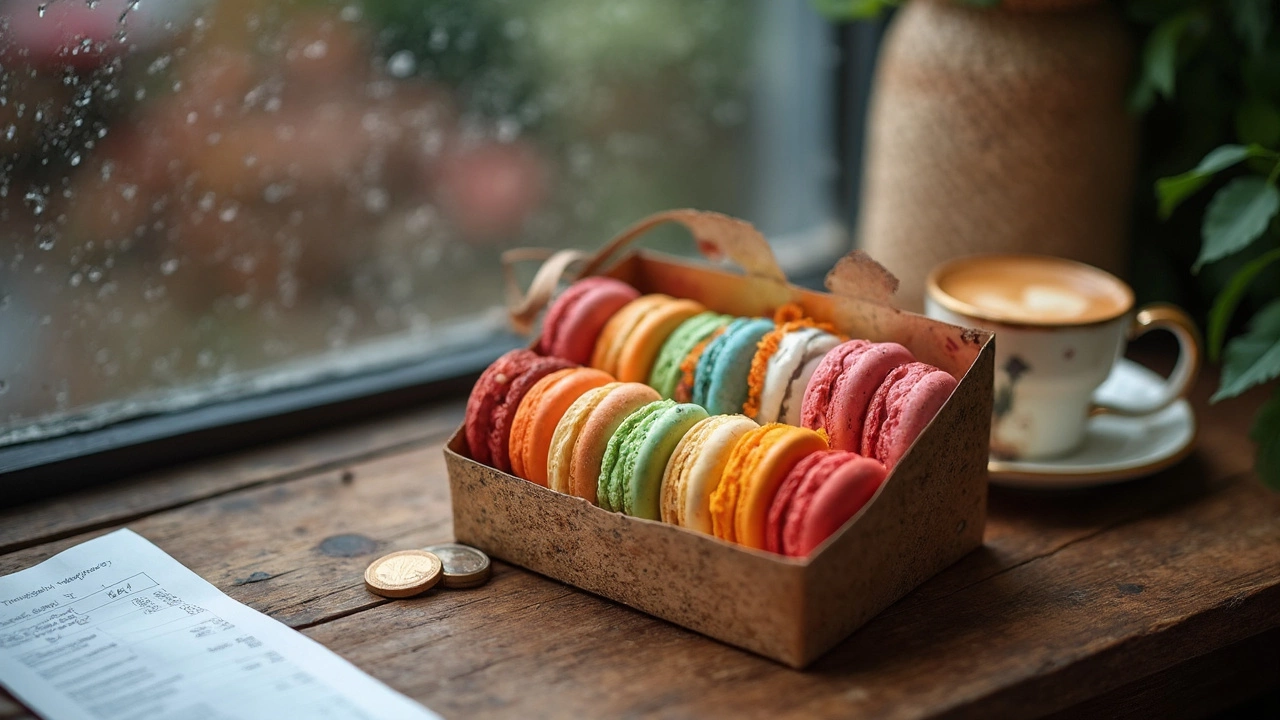
How Much Does a Hundred Macarons Cost? 2025 Macaron Pricing Guide
Curious about the going rate for a hundred macarons? Explore current macaron prices, see what influences costs, and get tips for buying quality macarons in 2025.
If you’ve ever wondered why a single macaron can cost $2 at a fancy shop but only a few cents if you bake them yourself, you’re not alone. The price of a macaron isn’t set in stone; it changes based on a handful of simple things.
First up, ingredients. Almond flour, quality chocolate, real fruit purées and fresh butter add up quickly. Cheap shortcuts like generic almond extract can bring the cost down, but the taste and texture suffer.
Second, size matters. Most bakeries sell 2‑inch shells, and bigger shells mean more batter and more labor, so the price goes up. Some places even charge extra for premium flavors like matcha or salted caramel.
Third, location plays a big role. A macaron in a city center or tourist spot will usually cost more than the same treat in a suburban bakery. Rent and staff wages are baked right into the price.
Fourth, labor. Making macarons is a precise process – you have to whip egg whites to the right stiffness, pipe the shells evenly and let them rest before baking. That skill time adds value.
Finally, packaging. If the shop wraps each macaron in a pretty box or adds a custom label, you’ll see that reflected in the final cost.
On average, a bakery macaron sells for $1.50‑$2.50 each. Bulk orders for weddings or corporate events can bring the price down to $0.80‑$1 per piece, but you still pay for the extra work.
Doing it yourself can shrink the cost dramatically. A basic batch of 24 shells usually costs about $7‑$9 in ingredients, which works out to roughly $0.30‑$0.40 per macaron. If you buy ingredients in larger packs or shop sales, you can push that number even lower.
Here’s a quick tip: make a big batch of shells, freeze them, and bake small batches as needed. This spreads the ingredient cost over many servings and reduces waste.
Are you thinking of selling macarons? A good rule of thumb is to price them at about three times your ingredient cost. That covers labor, packaging and a small profit. So if each macaron costs $0.30 to make, aim for $1.00‑$1.20 in your shop.
For occasional treats, stick to the store‑bought price guide. If you love the process or want to keep costs low, try the homemade route and experiment with flavors you can’t find elsewhere. Either way, knowing what drives the price helps you decide where to spend your money.
Bottom line: ingredients, size, location, labor and packaging all shape the macaron price. By understanding each factor, you can budget better, price your own creations fairly, and still enjoy these colorful bites without breaking the bank.

Curious about the going rate for a hundred macarons? Explore current macaron prices, see what influences costs, and get tips for buying quality macarons in 2025.

Curious about the price of a box of macarons? Discover what affects macaron costs, smart money-saving tips, and everything you need to make an informed treat-buying decision.

Macarons look fancy, but their prices can leave you with sticker shock. This article breaks down the real costs for a box of 20 macarons, explains why these little cookies are pricey, and shows where to get the best deals. You'll get tips on what to watch out for when buying and how to judge quality before you spend. Get the info you need to enjoy your macarons without overpaying.

Wondering why macarons cost so much? This article breaks down the real value behind these delicate French treats. Get tips for buying, storing, and even making your own. Find out what drives the price up, whether buying in a bakery or making a batch at home. Avoid mistakes and get more value for your money with every colorful bite.

Ever wondered why macarons cost more than your average sweet snack? This article breaks down why these eye-catching French cookies have a higher price tag, what actually goes into making them, and how you can spot a fair deal. You’ll get specific numbers, real-life examples, and tips for saving money if you want to enjoy macarons more often. It’s a practical read for anyone curious about their next indulgence or looking to buy a box for a special occasion.